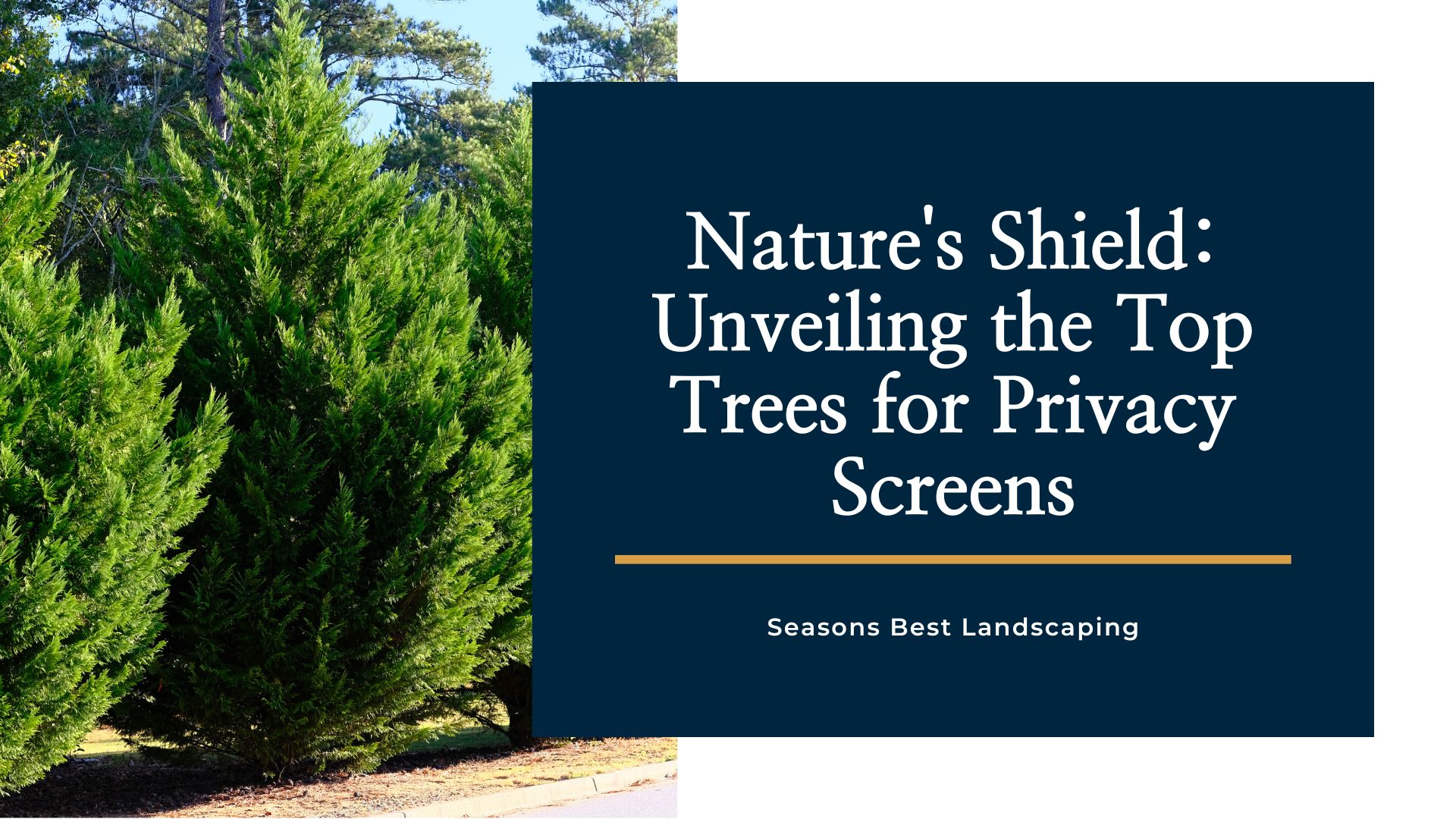
Nature’s Shield: Top 7 Trees for Privacy Screens
In a world where privacy is becoming increasingly valued, creating secluded spaces within our outdoor environments has become a priority for many homeowners. While there are various options available for creating privacy screens, using tree installation as a natural barrier offers numerous benefits beyond visual obstructions. Let’s delve into the top seven trees for privacy screens and explore how they can enhance your outdoor living experience.
1. Leyland Cypress (Cupressus x leylandii)
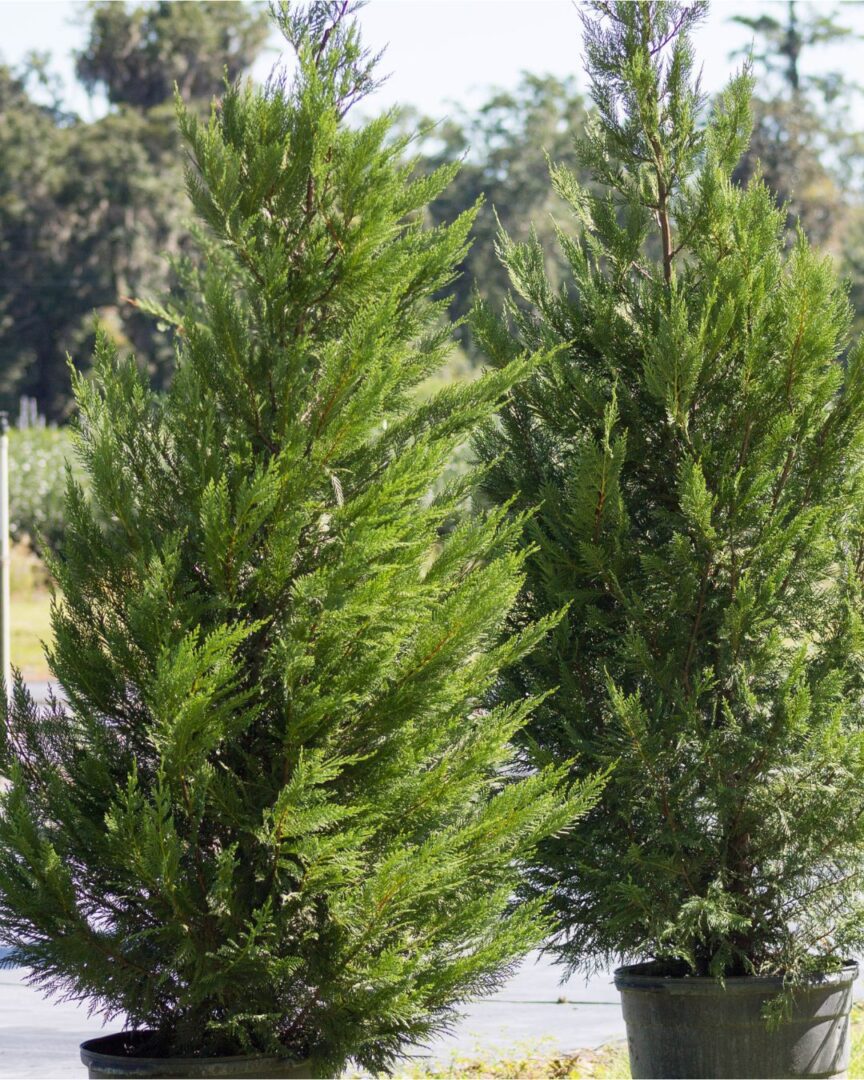
The Leyland Cypress is a popular choice for privacy screens due to its fast growth rate and dense foliage. This evergreen tree features feathery, dark green foliage that remains vibrant throughout the year.
With its tall and slender form, Leyland Cypress gives homeowners excellent coverage and creates an effective barrier against unwanted views. Other benefits? It also adapts well to various soil conditions and is resistant to pests and diseases.
2. Green Giant Arborvitae (Thuja plicata ‘Green Giant’)
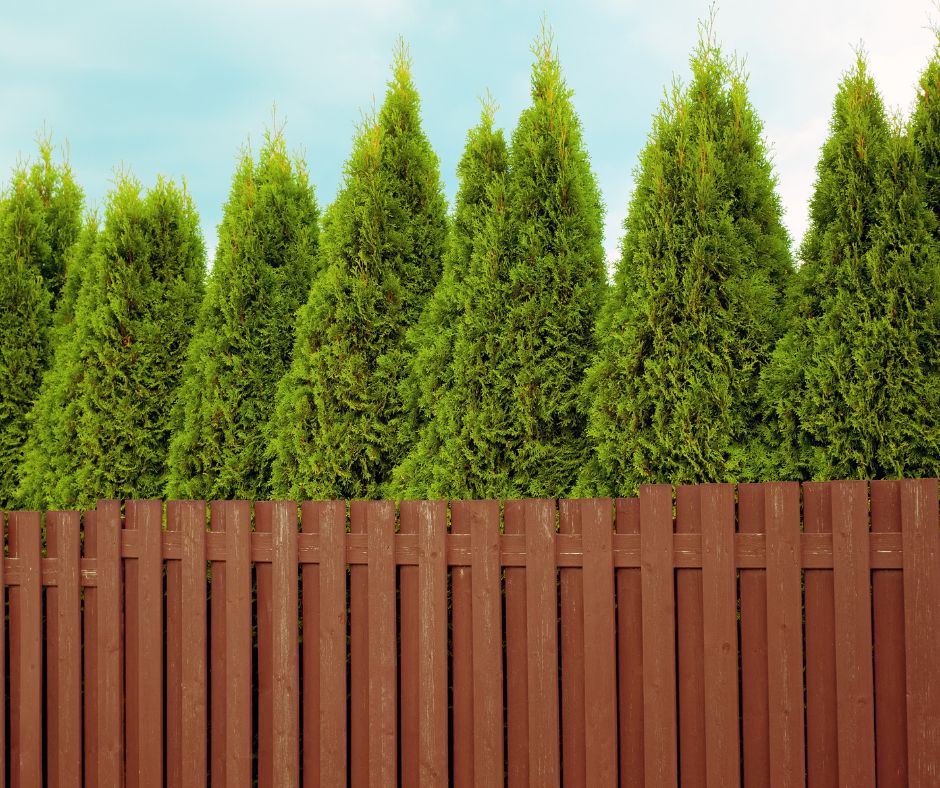
As its name suggests, the Green Giant Arborvitae is impressive. This evergreen tree can reach towering heights of up to 50 feet or more. Its dense foliage consists of vibrant green, scale-like leaves that provide year-round privacy.
Given its rapid growth, the Green Giant is an ideal choice for quickly establishing a wall of green. Its tolerance to different soil types and resistance to deer push it even further up the list of top trees for privacy screens.
3. Eastern Red Cedar (Juniperus virginiana)
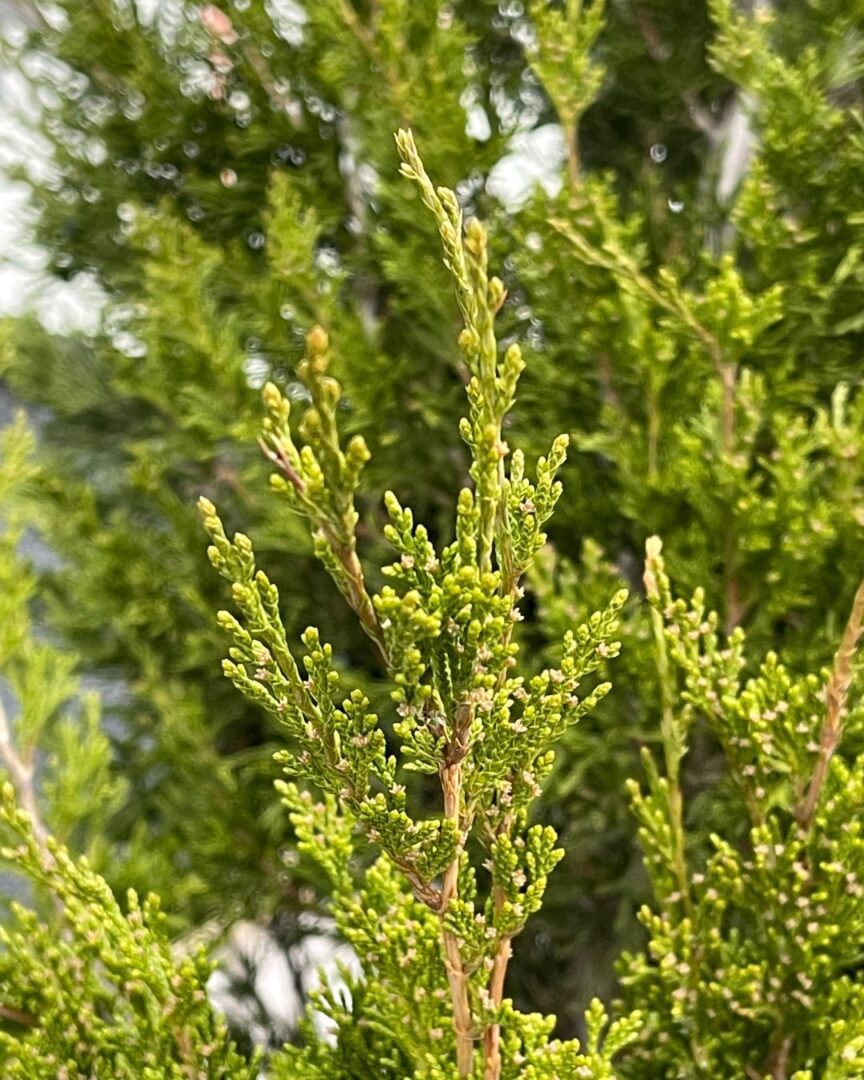
The Eastern Red Cedar is a native North American tree that is well-suited for privacy screens. This hardy evergreen tree features dense, blue-green foliage that retains its color throughout the year.
Much like the previous two entries on our list, the Eastern Red Cedar is highly adaptable to various soil types, including poor, dry and rocky soils. Because it can withstand drought and resist pests and diseases, it offers a good low-maintenance choice.
4. American Holly (Ilex opaca)
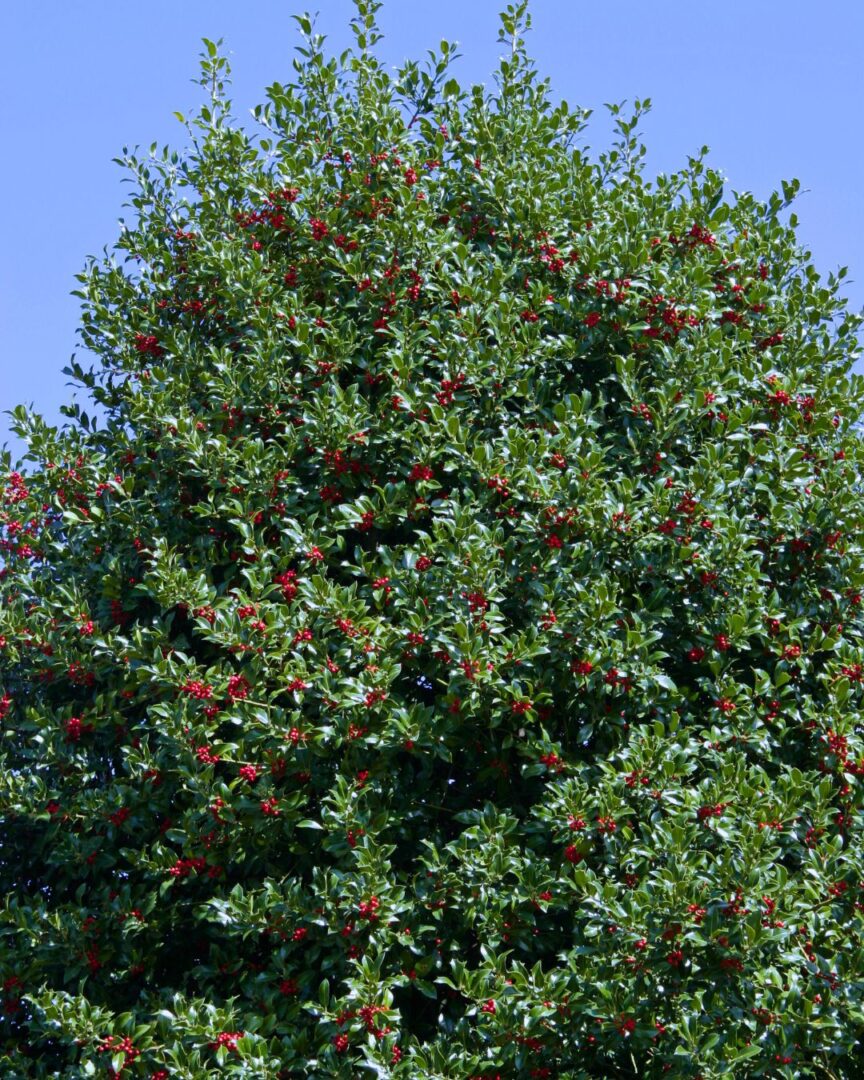
Next on our list is a beloved classic. If you’re looking for both privacy and aesthetic appeal, the American Holly tree is an excellent option. Known for its glossy, dark green leaves and vibrant red berries, this evergreen tree adds beauty and privacy to your landscape.
With its dense growth habit, the American Holly provides excellent coverage year-round. Because it prefers well-drained soils and partial shade, this holly is best suited for gardens or partially shaded areas.
5. Emerald Green Arborvitae (Thuja occidentalis ‘Emerald Green’).
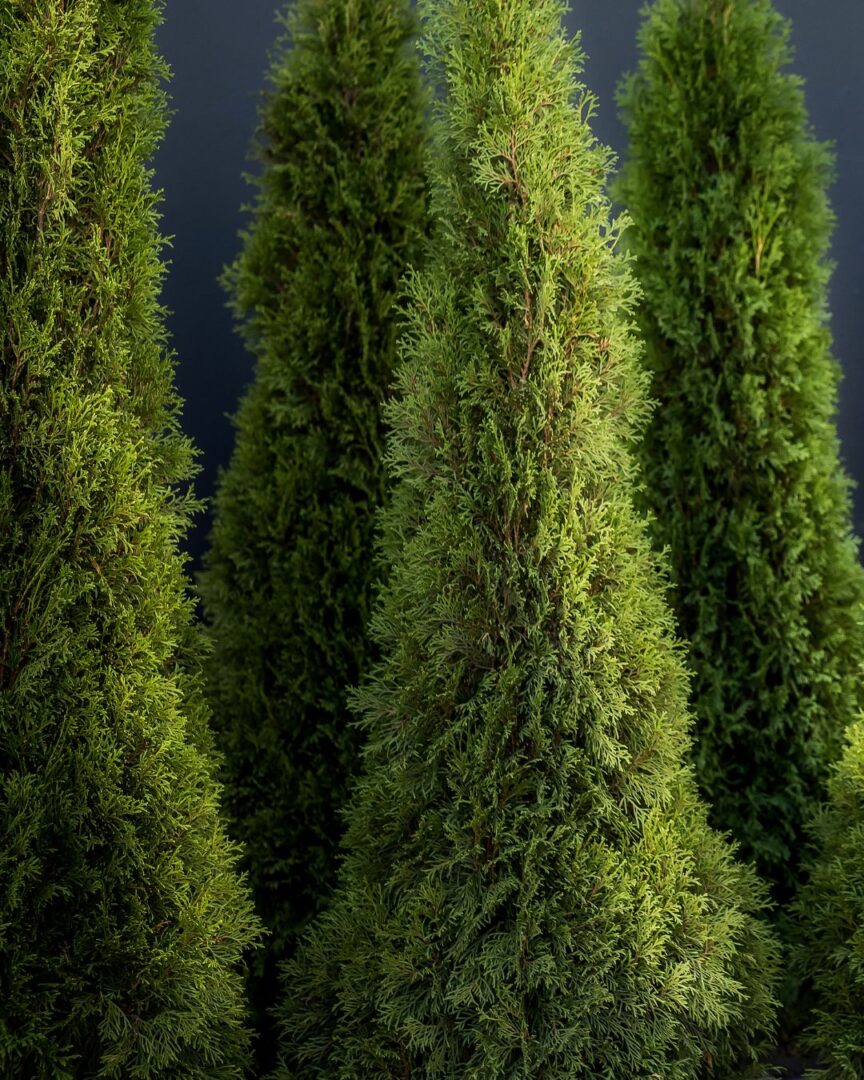
Looking for something a bit more petite?
The Emerald Green Arborvitae is a popular choice for privacy due to its compact and columnar form. This evergreen tree features soft, emerald-green foliage that retains its color even during winter.
Its narrow growth habit allows it to fit well in smaller spaces, making it ideal for urban or suburban landscapes. The Emerald Green Arborvitae is relatively low-maintenance and provides an elegant and refined look.
6. Southern Magnolia (Magnolia grandiflora):
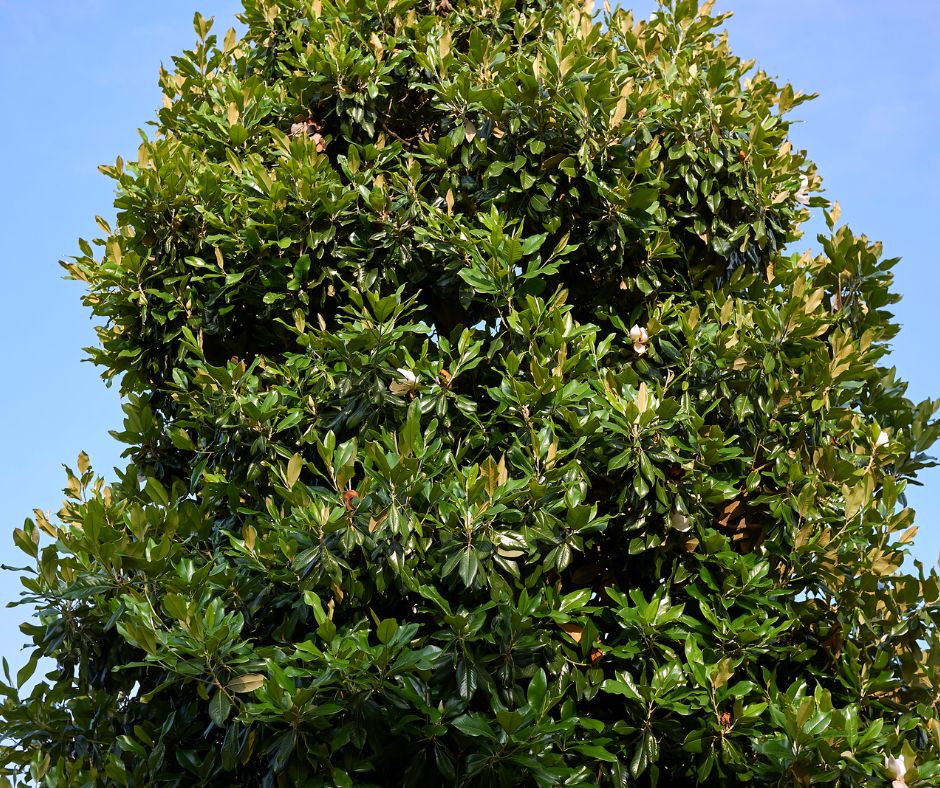
Want a touch of Southern charm? Look no further than the Southern Magnolia when choosing trees for privacy.
Known for its large, glossy, evergreen leaves and fragrant white flowers, this tree adds beauty and structure to any landscape. The Southern Magnolia requires well-drained soil and prefers full sun to partial shade.
The Southern Magnolia’s majestic presence and dense foliage make it an impressive option for privacy screens.
7. River Birch (Betula nigra)
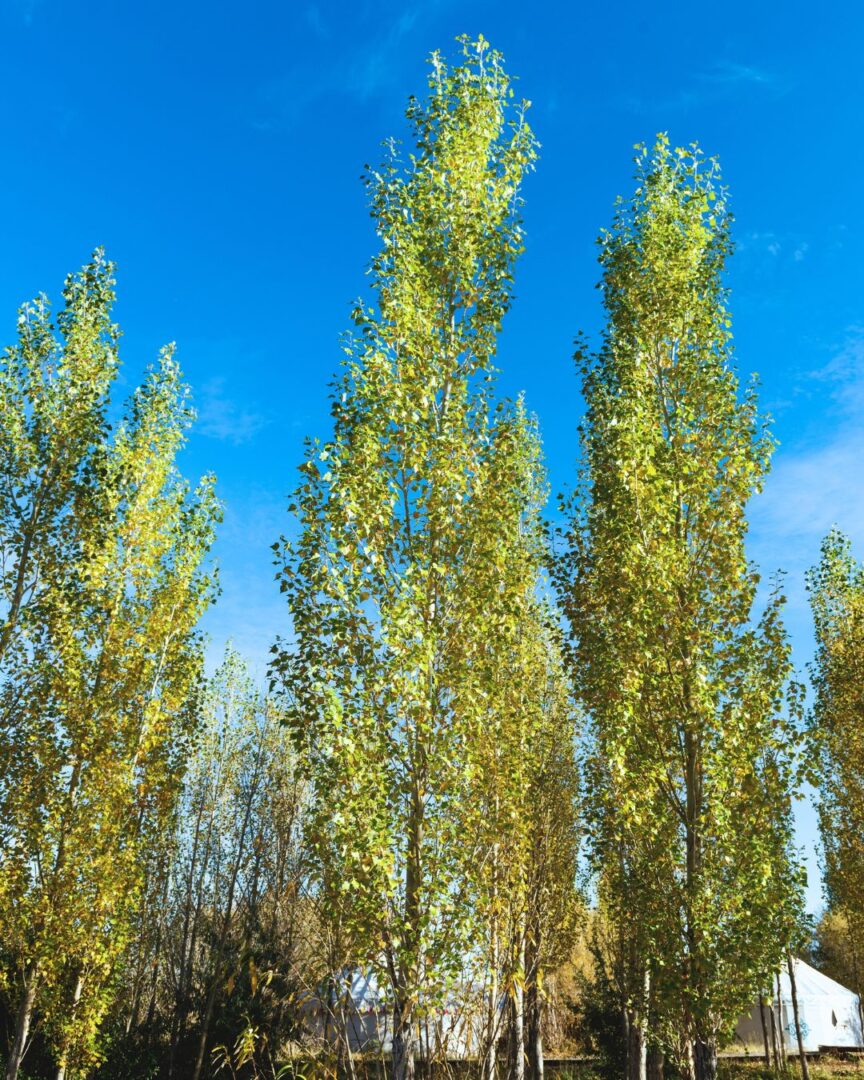
How about an alternative approach for trees for privacy? Check out the River Birch.
With its unique exfoliating bark that displays shades of cream, cinnamon and brown, this tree adds visual interest to your outdoor space. The River Birch also features delicate, serrated leaves that turn yellow in the fall.
While it loses its foliage in winter, its attractive bark provides year-round visual and tactile appeal. Keep in mind that the River Birch thrives in moist soil conditions.
How to Choose the Right Trees for Privacy
When selecting trees for privacy screens, it’s important to consider factors such as growth rate, foliage density, soil adaptability and maintenance requirements. At Seasons Best Landscaping, we specialize in designing and implementing privacy screens using carefully selected trees. Contact us today to transform your outdoor space into a private sanctuary that seamlessly blends with the beauty of nature.
